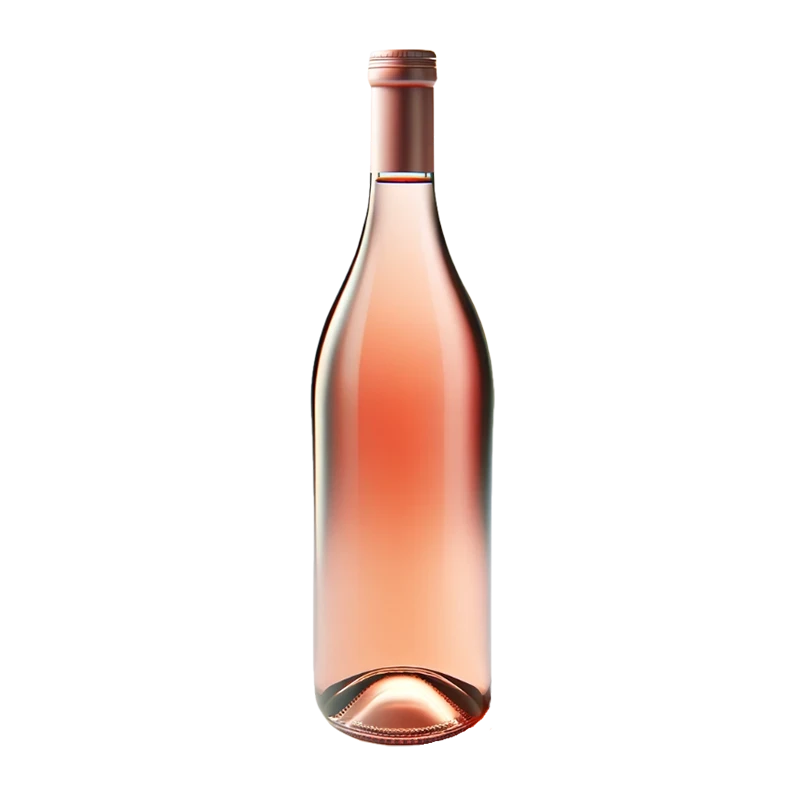Rose Wine — Nutrients, Health Benefits, And Shopping Tips

Written by Listonic Team
Last update on September 6, 2024
Rose wine nutrients
Nutrition facts
Amount per 100 g
Calories
🔥 83 kcal
| Nutrition per: 100 g | Value | % Daily Value* |
|---|---|---|
| Carbs | 3 g | 1.09% |
| Fiber | 0 g | - |
| Sugars | 1 g | 2% |
| Glycemic Index | 0 | - |
| Protein | 0 g | - |
| Sodium | 4 mg | 0.17% |
| Total Fat | 0 g | - |
*The % of Daily Value (DV) tells you how much a nutrient in a serving of food contributes to a daily diet. 2,000 calories a day is used for general nutrition advice.
Rose wine facts & tips
Health risks
- High alcohol content which can lead to addiction, liver damage, and other health problems if consumed in excess.
- High calorie content which can contribute to weight gain if consumed frequently or in large quantities.
- Potential for dehydration as alcohol is a diuretic, which can lead to increased urination and potential dehydration if not balanced with adequate water intake.
- Risk of interactions with medications particularly those related to blood pressure, cholesterol, or mental health, as alcohol can interfere with the effectiveness of these drugs.
How to choose rose wine
When selecting rosé wine, look for a bottle with a pale pink to light ruby color, clear and vibrant. The wine should be well-chilled and present a fresh, fruity aroma characteristic of young wines.
Avoid rosé wines that appear oxidized or have a brownish tinge, as these are signs the wine has aged beyond its intended consumption period. Bottles with a cork that is protruding or leaking should also be avoided, as they indicate potential spoilage or improper storage.

How to store rose wine
Rose wine should be stored in a cool, dark place, ideally in a wine rack or cellar. Refrigeration after opening helps maintain its flavor and freshness for up to a week. Always keep the bottle tightly sealed.
Fluctuating temperatures and exposure to light can spoil rose wine. Avoid storing it in the kitchen where temperatures can vary significantly. Always keep the bottle tightly sealed and store it horizontally to ensure longevity.
✅ Please keep in mind: There is no safe amount of alcohol
Even moderate alcohol consumption poses significant health risks. The most recent data from the World Health Organization warns that no level of alcohol consumption is safe for our health. Click to learn more.
How long does it last?
Rose wine can last for 3-5 days once opened and refrigerated. Unopened bottles can last for 1-3 years when stored in a cool, dark place.
What to do with leftovers?
Leftover rosé wine can be used in a variety of culinary and non-culinary ways. In the kitchen, rosé wine can be used to add a light, fruity flavor to dishes like sauces, marinades, and desserts. It can also be used to poach fruits or make a refreshing sangria or spritzer.
Beyond cooking, rosé wine has several creative uses. It can be used in DIY beauty treatments, such as mixing it with rosewater to create a toner that helps hydrate and refresh the skin. Rosé wine can also be used in homemade vinaigrettes or as a base for a light and flavorful wine jelly. Additionally, rosé wine can be used to dye fabrics or ribbons a soft pink hue, perfect for crafting or decorating. Some people even use rosé wine in homemade bath soaks, where its antioxidants can help to soften and nourish the skin.
👨⚕️️ Medical disclaimer
Discover products from other categories
Listonic Team
Fact-checked
Our editorial team checked this article to make sure it was accurate at the time of publishing it.
Get the top-rated shopping list app on your phone!







